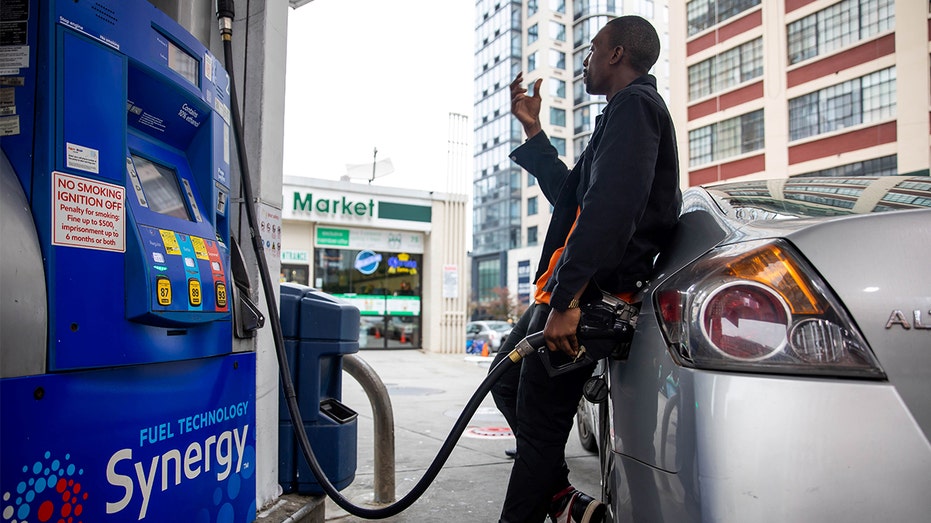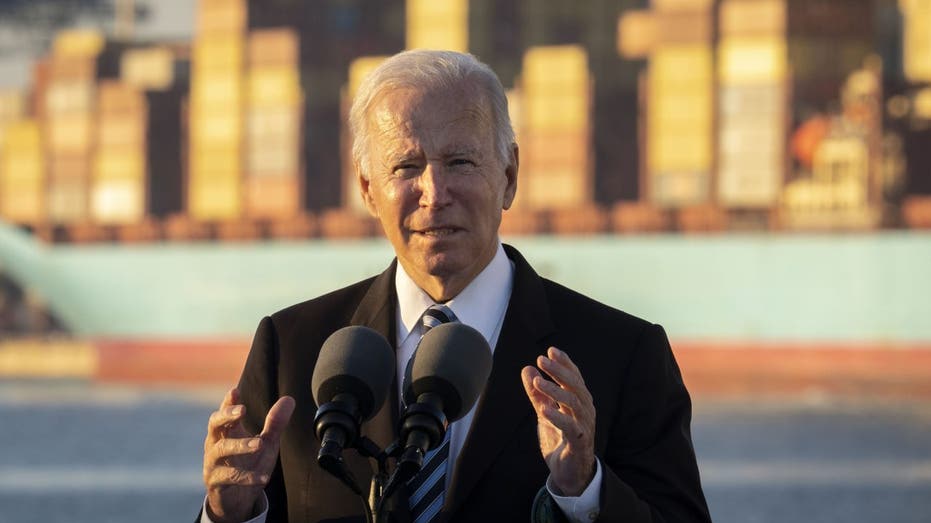Surging inflation hurts low-income Americans the most, new study shows
Rising gas prices increase cost-of-living for poor Americans
Inflation will ‘peak soon,’ have negative impact on stocks: Wells Fargo head global markets strategist
Wells Fargo head global markets strategist Paul Christopher argues inflation will cause people to ‘dip into their savings’ and ‘buy fewer goods.’
American consumers are grappling with the highest inflation rate in more than three decades, and the surge in the price of everyday goods is disproportionately hurting low-income workers, according to a new analysis published Monday by the Joint Economic Committee Republicans.
The research concluded that higher inflation – which erodes individual purchasing power – is especially harmful to low- and middle-income Americans. The GOP lawmakers cited research from both the Federal Reserve Banks of Cleveland and New York, which found that inflation reduces poor individuals’ lifetime consumption opportunities more than their wealthier counterparts – largely due to rising gasoline prices.
WHERE IS SURGING INFLATION HITTING AMERICANS THE HARDEST?
"Inflation reduces poor Americans’ quality of life, and rising gas prices specifically increase the cost of living for poor Americans living in rural areas much more than for richer Americans," the JEC analysis said.

The report comes less than one week after the Labor Department released new data revealing that prices for U.S. consumers surged 6.2% in October compared with a year earlier. So-called core prices, which exclude the more volatile measurements of energy and food, rose 4.6% over the past year. Both are the largest increases since 1990. From September to October, prices jumped 0.9%.
Rising inflation is eating away at strong gains and wages and salaries that American workers have seen in recent months (average hourly wages in the U.S. actually fell 1.2% last month compared with October 2020 when accounting for inflation).
The resulting price squeeze has been bad news for both Biden administration officials as well as Federal Reserve policymakers, many of whom have been downplaying the recent spike in consumer prices as "transitory" and likely to abate as pandemic-induced disruptions in the supply chain faded.

It's unclear when consumers can expect to see inflation begin to slow, with prices for an array of goods continuously climbing higher: Gasoline skyrocketed by nearly 50% in the year to October, meat was up 14.5% and rent increased by 3.5%.
GET FOX BUSINESS ON THE GO BY CLICKING HERE
In fact, more than half of the annual increase in the index stemmed from rising food and shelter prices, according to the JEC Republicans. Another major factor was transportation inflation, with the cost of gas and used cars experiencing some of the largest price increases to date.
"Unsurprisingly, lower-income households spend a larger portion of their incomes on items in all three of these categories, and the difference is stark," the JEC research said.





















